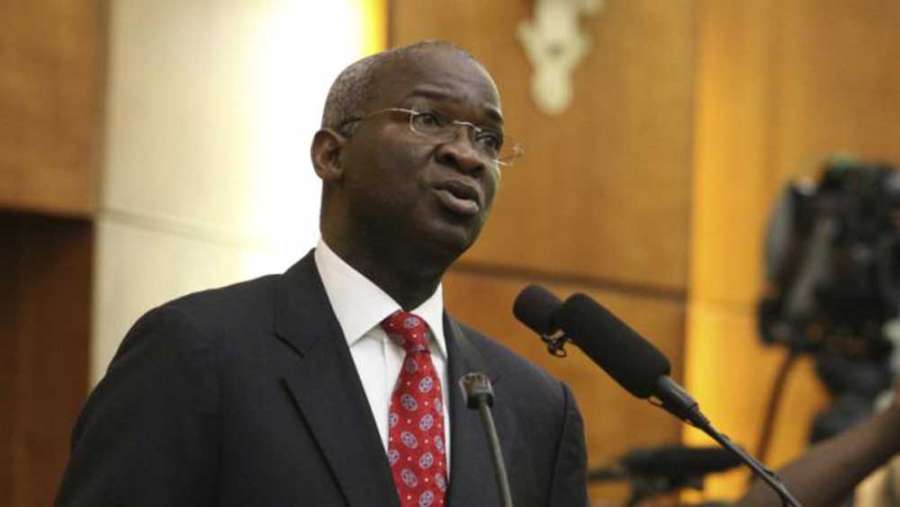Minister of Power, Works and Housing, Babatunde Fashola has defended government’s thirst for borrowing, saying in as much as the debt is for infrastructural development in the country, it is a good debt.
Fashola who disclosed this while speaking at the African Investment Forum in Sandton South Africa on Wednesday, said the Nigerian government should not be judged like a private company when it comes to borrowing.
“I think we must see government different from companies, and the profit of a government and a nation is the prosperity of its people, not how much money it has in a bank.”
The former governor of Lagos state said as a governor in Africa’s largest city, he had to take loans to set up six power plants in the state, but tied the repayment of the debt to the state’s monthly allocation from the federal government.
He said he gave the investors the assurance that if he defaulted, they could take the money from the monthly income of the state.
Fashola said people do not want you to raise taxes, and do not want you to borrow, yet they want roads and bridges, adding that there is no other way out.
“On this side, I think my outlook is different; if you can’t find the money, just like I challenged people two days ago, they want roads, they want bridges and they don’t want to borrow and they don’t want you to raise taxes. So how do you deliver?
“I think the important thing is to raise debt, invest it in infrastructure because it will deliver prosperity, it will build efficiency in the nation, it would turn into growth and it would yield income over time.”
The minister said Nigeria’s power problems have changed over the past three years, yet the government must keep up.
Fashola explained that when he came in as a minister, the problem was how to generate power, he said today, the problem is how to distribute power.
He said to power Africa as a continent, the plans must be different, adding that what works for Botswana will not work for a country like Nigeria, which is a federation with over 400 parliamentarians.
Nigeria’s debt has grown by over 100 percent in the past three years.

 Latest4 days ago
Latest4 days ago
 Trends5 days ago
Trends5 days ago
 Business6 days ago
Business6 days ago
 Football6 days ago
Football6 days ago
 Health6 days ago
Health6 days ago
 Featured7 days ago
Featured7 days ago
 Football6 days ago
Football6 days ago
 Business6 days ago
Business6 days ago

